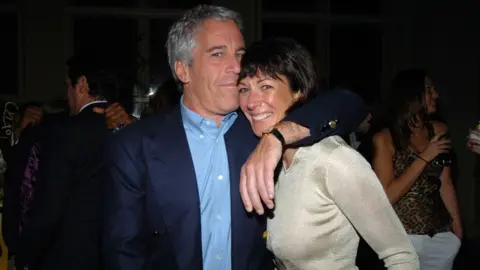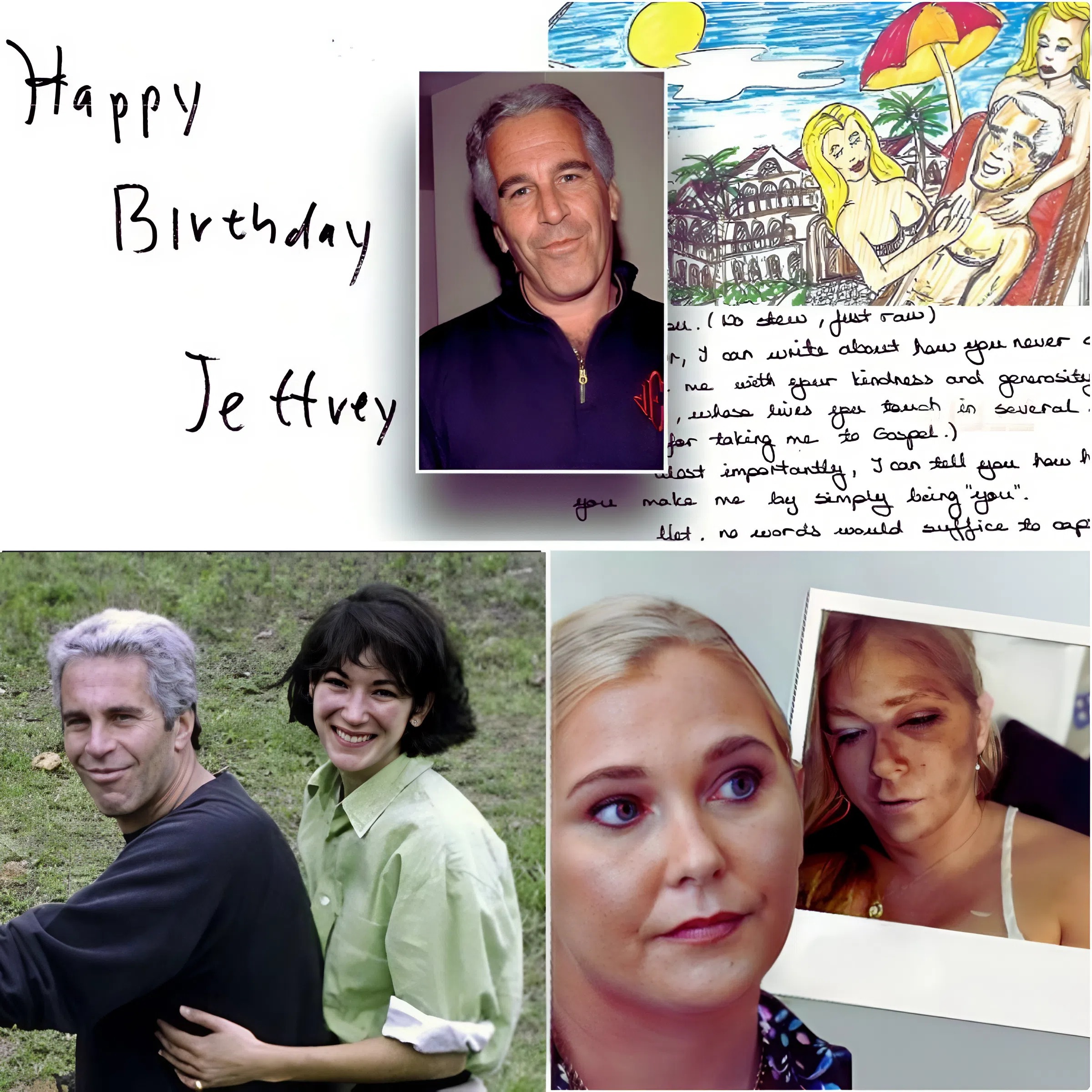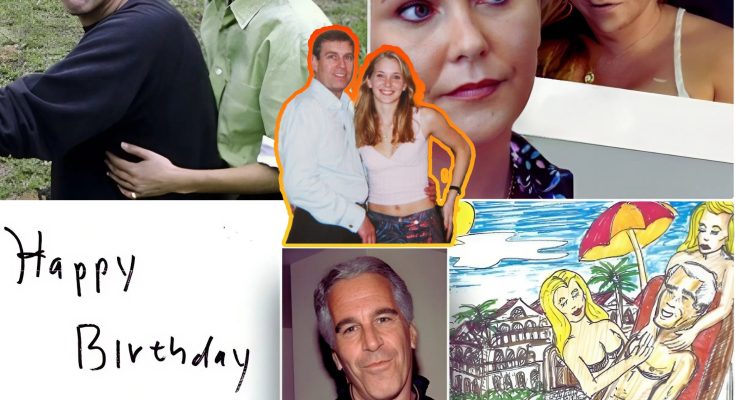For years, Virginia Giuffre was a name synonymous with resilience and outrage—the most prominent, unyielding accuser in the depraved saga of Jeffrey Epstein and Ghislaine Maxwell. She was the woman who dared to stand against titans, who forced a royal into an out-of-court settlement, and whose courage dragged the dark machinations of the global elite into the unforgiving light of day. Now, in the wake of her tragic death by suicide in April 2025, her final, unsparing testament, Nobody’s Girl: A Memoir of Surviving Abuse and Fighting for Justice, has been released, promising a final, definitive accounting.

This is not a traditional memoir; it is a meticulously documented final demand for truth, a 400-page explosion designed to shatter the walls of legal and societal silence that protected Epstein’s extensive network of powerbrokers. Giuffre, in her own words, provides the context that has been “sorely lacking,” detailing not just the abuse itself, but the psychological architecture of an operation designed to groom, control, and traffic vulnerable girls to the highest echelons of global society—an empire of secrets that touched down everywhere from a private island paradise to the drawing rooms of royalty.
The $15,000 ‘Service’ and the Royal Entitlement
The most explosive and culturally destabilizing revelations focus on Giuffre’s alleged encounters with Britain’s Prince Andrew. While the accusations have been public for years, the memoir provides a chilling, first-person narrative of the alleged transaction, giving raw detail previously only hinted at in court documents.
Giuffre recounts the specifics of the alleged encounter, noting the royal’s entitled and casual demeanor in a quote that has sent tremors through Buckingham Palace: “He was friendly enough, but still entitled—as if he believed having sex with me was his birthright.” This single phrase cuts through the carefully manicured image of the monarchy, framing the alleged abuse not as a regrettable incident, but as an act born of profound privilege and untouchability.
The transactional nature of the abuse is laid bare in a subsequent exchange described in the memoir. Giuffre details the cold, clinical aftermath of the alleged encounter, quoting Maxwell’s instructions and the financial payoff that followed: “The next morning, Maxwell told me: ‘You did well. The prince had fun.’ Epstein would give me $15,000 for servicing the man the tabloids called ‘Randy Andy.’”
This revelation does more than simply confirm an accusation; it exposes the exact mechanics of Epstein’s operation, where sexual exploitation was a commodity, and access to a royal figure was literally valued and paid for in cash. The fact that Giuffre completed this manuscript and explicitly insisted on its publication—sending an email just weeks before her death stating, “It is imperative that the truth is understood”— transforms the book into an ultimate act of defiance, forcing the world to reckon with the moral bankruptcy of its most shielded institutions.

The Darkest Secret: A Recruiters Guilt
Beyond the shocking names and dollar amounts, the memoir plumbs the depths of Giuffre’s psychological ordeal, including a previously obscured detail that she called “the worst thing I’ve ever done in my life.” Giuffre describes how Epstein and Maxwell, having thoroughly groomed and broken her, coerced her into becoming a recruiter, finding other young, vulnerable girls for Epstein’s so-called “massages.”
This element of her story—the transition from victim to reluctant facilitator—is critical to understanding the concept of coercive control that defined Epstein’s empire. Giuffre’s remorse is palpable on the page, offering a raw look at the relentless psychological warfare waged by her abusers to implicate her and destroy her self-worth. In one harrowing passage, she confesses the emotional scar left by her forced participation: “The faces of the girls I recruited will always haunt me.”
This is where the memoir transcends tabloid scandal and becomes a profound document on survival and shame. It forces the reader to acknowledge the complex ways trauma warps the victim’s behavior, making clear that the responsibility for the abuse lies squarely with the perpetrators, not the coerced victims.
The Circle of Elites and the Unanswered Questions
Giuffre’s memoir revisits the names that populated Epstein’s orbit, expanding on her claims of being trafficked to numerous prominent men, who she often did not know by name, or whose names she omitted out of fear of further retaliation. Her account reiterates that she met Donald Trump once at his Mar-a-Lago club, where she first met Maxwell, but she pointedly makes no accusations of wrongdoing against him. Similarly, she recalls being present during dinners Epstein held with former President Bill Clinton and former Vice President Al Gore, but clarifies that these individuals are not subjects of her abuse allegations.
By naming the specific, chilling details of her encounters with some elites while deliberately omitting or declining to accuse others, Giuffre maintains a credible, forensic focus. This approach has left the entire circle of Epstein’s acquaintances holding their breath, wondering which details about private jets and island visits Giuffre chose to hold back, and which have yet to be revealed.
In the memoir’s concluding pages, Giuffre directs her final rage and frustration not just at the abusers, but at the system that protected them. She asks the essential, burning question that continues to plague the global pursuit of justice: “Where are those videotapes the FBI confiscated from Epstein’s houses? And why haven’t they led to the prosecution of any more abusers?”
The memoir, legally vetted and meticulously fact-checked, serves as Giuffre’s final word in her battle against those who sought to silence her. It is an extraordinary chronicle of a young woman’s journey from a traumatic childhood to the heart of a global sex-trafficking conspiracy, and her emergence as a “fierce spirit struggling to break free.” The publication ensures that even in death, Virginia Giuffre continues to be the most powerful, unyielding force confronting Epstein’s empire of secrets. The silence is unequivocally over, and the reckoning for the powerful has just begun.



